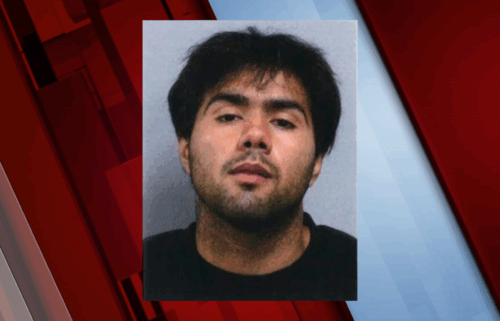UPDATE: Five students from MIIS potentially impacted by travel ban
School leaders from the Middlebury Institute of International Studies say at least five students could potentially be affected by President Donald Trump’s recently signed executive orders. The executive order bans travel from seven Muslim-majority countries for 90 days, suspends all refugee admission for 120 days, and bans Syrian refugees.
“We’re profoundly disappointed and worried about this travel ban, given it gets to the very heart of what we do,” said Jeff Dayton-Johnson, dean at MIIS. “We’re an institute for international studies. We have a lot of students from around the world, faculty from around the world and we think that this restricts the ability of our students and faculty to do the work that they’ve come here to do.”
Students from 64 different countries go to school at MIIS, but right now, school officials are focusing on three of them – Iraq, Syria and Sudan. That’s because those five students are from those countries affected by the refugee travel ban. School leaders have been trying to contact them to find out where they are.
“Of the five students I told you about, I know two of them for sure,” Dayton-Johnson said. “It personalizes this executive order to know the people who are caught in between the executive order and their daily lives.”
Natalia Zuo, a MIIS student from Brazil, thinks she knows one of them.
“She was not in class today, she was supposed to be,” Zuo said. “I’m trying to figure out if she went back to her country or trying.”
While no staff or faculty at the Monterey institute have been affected, Dayton-Johnson has heard of a colleague at another facility stranded overseas.
“We have a faculty colleague at Middlebury College in Vermont who is Iranian,” Dayton-Johnson said. “He’s from Iran, he’s in Iran right now and he can’t come home. These are real people. And so what I think, our students think is that members of their community that they know and work with and study with and go to class with are affected by this is a very worrying way.”
Zuo and other international students like Onaba Bayab of Afghanistan said they are worried about their futures.
“I was so scared of the travel ban because I’m an international student, Bayab said. “I know how the international students were going to feel and moreover, I’m a Muslim and the travel ban was on Muslim countries. I kept thinking about my classmates who are from Syria or from Iran or from the conflict regions, and then I was thinking, ‘Are we not going to go and see our families because of this ban?’ It’s affecting everybody and it’s affecting more, it’s affecting our studies. Students from these countries can’t focus on their studies because they keep thinking about their families and their own well-being, you know?”
Zuo said she wanted to visit Brazil sometime this year, she has changed her mind. Bayab is afraid the ban could be expanded.
“Every time I am online with my friends on Facebook and they’re like, ‘Onaba, do you want to go home?’ and I’m like, ‘If I go home will I be able to come back for my studies?'” Bayab said. “There are a lot of opportunities in the U.S. for us to grow, then go back to our country to make a positive change and now Trump is reducing those opportunities.”
MIIS has an International Student Services Office that provides information and referrals to international students, answering any questions or concerns.
Click here to read a statement by Middlebury President Laurie Patton.
ORIGINAL POST:
Reaction is coming in from all over the Central Coast regarding President Donald Trump’s executive order restricting entry into the United States by individuals from seven countries. Those countries are Syria, Iraq, Iran, Libya, Sudan, Yemen and Somalia.
The President of the Middlebury Institute of International Studies, Laurie Patton, released a statement Saturday calling the executive order a “deeply distressing development.”
MIIS, which began session on Monday, has students from Sudan, Syria and Iraq.
Patton said her staff is working with colleagues and students who are abroad right now and may be affected by the order. She is also advising students to who plan to travel outside of the contiguous U.S. to register their travel, so staff knows where they are and how to get in contact with them just in case.
In a statement released Sunday, University of California President Janet Napolitano said she and university chancellors, including George Blumenthal of UC Santa Cruz, are deeply concerned.
“While maintaining the security of the nation’s visa system is critical, this executive order is contrary to the values we hold dear as leaders of the University of California,” Napolitano wrote. “The UC community, like universities across the country, has long been deeply enriched by students, faculty, and scholars from around the world, including the affected countries, coming to study, teach, and research. It is critical that the United States continues to welcome the best students, scholars, scientists, and engineers of all backgrounds and nationalities.”

